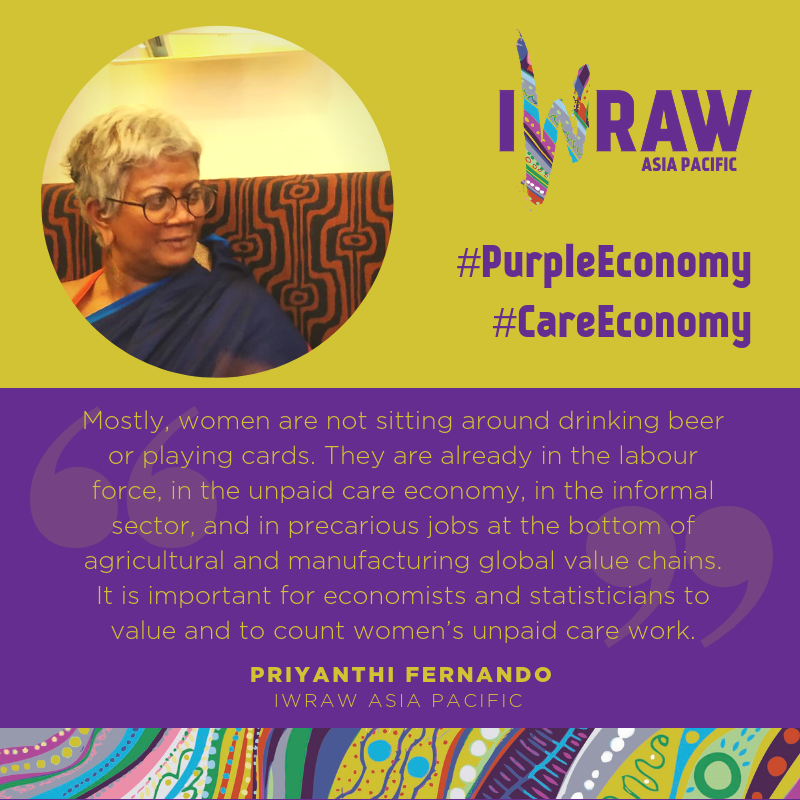 Basic concepts of macroeconomics: Economic aggregates and economic growth
Basic concepts of macroeconomics: Economic aggregates and economic growth  Inflation
Inflation
Annexe I: Basic concepts of macroeconomics
At the national level
- Gross Domestic Product (GDP)
GDP is the total value of all the goods and services produced in a country over a specific period of time. In order to account for the size of the population, GDP per capita is measured by dividing GDP by the country’s total population.
There are different ways of measuring the GDP of an economy:
- measuring spending (or expenditures)
- measuring production, or
- measuring income.
For example, the spending method measures all the spending by consumers, businesses (investment), government, and the spending on net exports (net export = total value of exported goods and services minus the total value of imported goods and services).
When we measure GDP by using that year’s prices (or current prices), we are actually measuring nominal GDP. Nominal GDP might not give us an accurate idea about the economy, because it does not take inflation (price changes) into account. Only when nominal GDP is adjusted according to the price changes, can we find real GDP.
Countries focus strongly on the GDP when assessing the ‘health’ of their economy. This means that what is included and excluded in the calculation of GDP is a very important indicator of what and how different aspects of the economy are valued by policymakers. It is commonly accepted that GDP is not a measure of well-being, but merely an indicator of economic activity.
 From a feminist point of view, one of the most significant issues concerning GDP is that it does not include unpaid domestic labour and care work. This labour and work are disproportionately performed by women, which means that GDP renders women’s contribution to the national economy invisible.
From a feminist point of view, one of the most significant issues concerning GDP is that it does not include unpaid domestic labour and care work. This labour and work are disproportionately performed by women, which means that GDP renders women’s contribution to the national economy invisible.
Others criticise GDP for its neglect of the ecological costs of economic growth.1Berik, G. (2018). “To Measure and to Narrate: Paths Toward a Sustainable Future”. Feminist Economics, 24(3), 136–159. For example, air pollution due to increased productivity may create significant health issues for people. Yet, such negative effects are not reflected in GDP.
Furthermore, GDP does not account for increasing inequality. An increase in the income of a small percentage of wealthy individuals (e.g. CEOs) may drive the average income up, even when the majority of people’s incomes stagnate or go down.2Stiglitz, J. E. (2009). “GDP Fetishism”. The Economists’ Voice, 6(8).
In other words, a growing economy may not always translate to a higher standard of living for the majority of people. It is also not possible to see what kind of effect it has on the lives of women and girls without gender-disaggregated data. Any kind of metric designed to measure the welfare of people should take economic, environmental, and social factors into account.
There are alternative measures which are designed and proposed by different groups of scholars or policymakers to add to or replace GDP. Genuine Progress Indicator (GPI) is one of those alternative measures which incorporates many factors that GDP leaves out.
Recession
‘Recession’ refers to a general decline in economic activity. It is often defined as negative GDP growth for two consecutive quarters. Recession is associated with a decline in real GDP, employment, income, and output. When the recession is severe and prolonged, it is called depression. For example, the shutdown of the economies in many parts of the world to prevent the spread of COVID-19 is expected to cause a global recession.
The outcomes of any recession is subject to the actions of institutions, governments, and other actors that we have discussed in this starter kit. Understanding the structural, large-scale economic changes and processes help us to hold decision-makers accountable. This ensures that people are protected in times of recession, and strategies to end the recession prioritises human rights over business interests.
 Basic concepts of macroeconomics: Economic aggregates and economic growth
Basic concepts of macroeconomics: Economic aggregates and economic growth  Inflation
Inflation
Footnotes
- 1Berik, G. (2018). “To Measure and to Narrate: Paths Toward a Sustainable Future”. Feminist Economics, 24(3), 136–159.
- 2Stiglitz, J. E. (2009). “GDP Fetishism”. The Economists’ Voice, 6(8).

